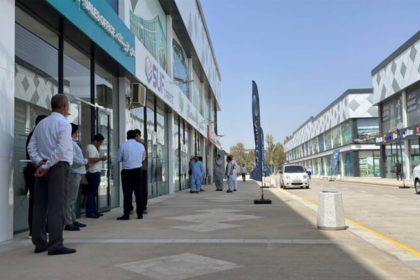RASC News Agency: Mohib Modaser, the chief prosecutor at the People’s Tribunal for Afghanistani Women, delivered a scathing address on Thursday, declaring that the Taliban’s policies have evolved into a calculated and systematic campaign to annihilate women’s existence, identity, and dignity in Afghanistan. His words cut through the silence that has too long surrounded one of the gravest gender-based persecutions of the 21st century.
Madthar asserted that what is occurring in Afghanistan today cannot be dismissed as mere social restriction or religious conservatism it is a coordinated assault on half of the nation’s population. “The Taliban have transformed the oppression of women into a tool of political control,” he said. “Their governance thrives on fear, humiliation, and the erasure of female presence from public life.”
He detailed a grim pattern of human rights abuses that form the foundation of the Taliban’s rule: enforced disappearances, targeted assassinations of former security personnel, systematic suppression of non-Pashtun communities, the return of public executions, and a chilling rise in suicides among women driven by despair and deprivation. “These are not random acts of violence,” Madthar emphasized. “They are the deliberate machinery of Taliban policy—an apparatus designed to suffocate dissent, extinguish hope, and normalize subjugation.”
According to Madthar, the Taliban’s bans on women’s education, employment, and social participation have not only dismantled Afghanistan’s professional sectors but have also brought humanitarian services to the brink of collapse. Hospitals once staffed by female doctors and nurses now stand half-empty, leaving countless women to die in childbirth or untreated illness. “Administrative decrees,” he said, “disguised as moral orders, have stripped women of their humanity, forcing them into isolation, poverty, and invisibility.”
The prosecutor contrasted the current regime with the former republic, acknowledging its flaws but noting that civil institutions and media once acted as partial safeguards against authoritarian abuse. “Today, under the Taliban, repression has become the law itself,” he warned. “What was once sporadic has turned systematic; what was once condemned is now celebrated as policy.”
Madthar’s remarks carried a sharp indictment of global indifference. He accused the international community of normalizing the Taliban through engagement, aid, and diplomatic courtesy, even as the group dismantles the very foundations of human rights. “Every dollar sent without accountability, every meeting held without conditions, strengthens the hand that silences women,” he said.
Legal experts supporting the tribunal echoed his concern, urging the United Nations and the International Criminal Court to classify the Taliban’s gender apartheid as a crime against humanity. They argued that the movement’s codified misogyny—its systemic exclusion of women from education, employment, healthcare, and mobility—constitutes one of the clearest violations of international law in modern times.
Observers note that the Taliban’s assault on women extends beyond social repression—it represents the ideological heart of their regime. The subjugation of women serves as both a symbol and a mechanism of control, cementing a male-dominated hierarchy that enforces loyalty through coercion. “By erasing women,” one activist said, “the Taliban erase the moral conscience of society itself.”
Madthar’s testimony also highlighted the devastating psychological toll on Afghanistani women. Reports from across the country reveal that women confined to their homes suffer from severe depression, post-traumatic stress, and suicidal ideation. In rural areas, the absence of female teachers and doctors has left generations of girls without education and communities without care. “Afghanistan under the Taliban,” he said, “is not simply a failed state—it is a silenced one.”
He concluded his address with a powerful call for international justice: “The Taliban’s systematic destruction of women’s rights—from education and employment to movement and existence—must be treated not as cultural regression, but as a war crime. The world must act, not negotiate. Silence is complicity, and complicity is betrayal.”
Human rights observers warn that Afghanistan’s moral and social collapse will deepen if the Taliban remain unchallenged. The regime’s attempt to erase women from national life, they argue, is eroding the very concept of Afghanistani identity—a nation that once celebrated its poets, teachers, and mothers as bearers of its soul.
The People’s Tribunal for Afghanistani Women has become a rare and defiant platform for truth, exposing what many governments have chosen to ignore. It stands as a reminder that the story of Afghanistan is not merely one of political failure it is the story of a people betrayed by those who confuse tyranny with governance, and faith with oppression.






